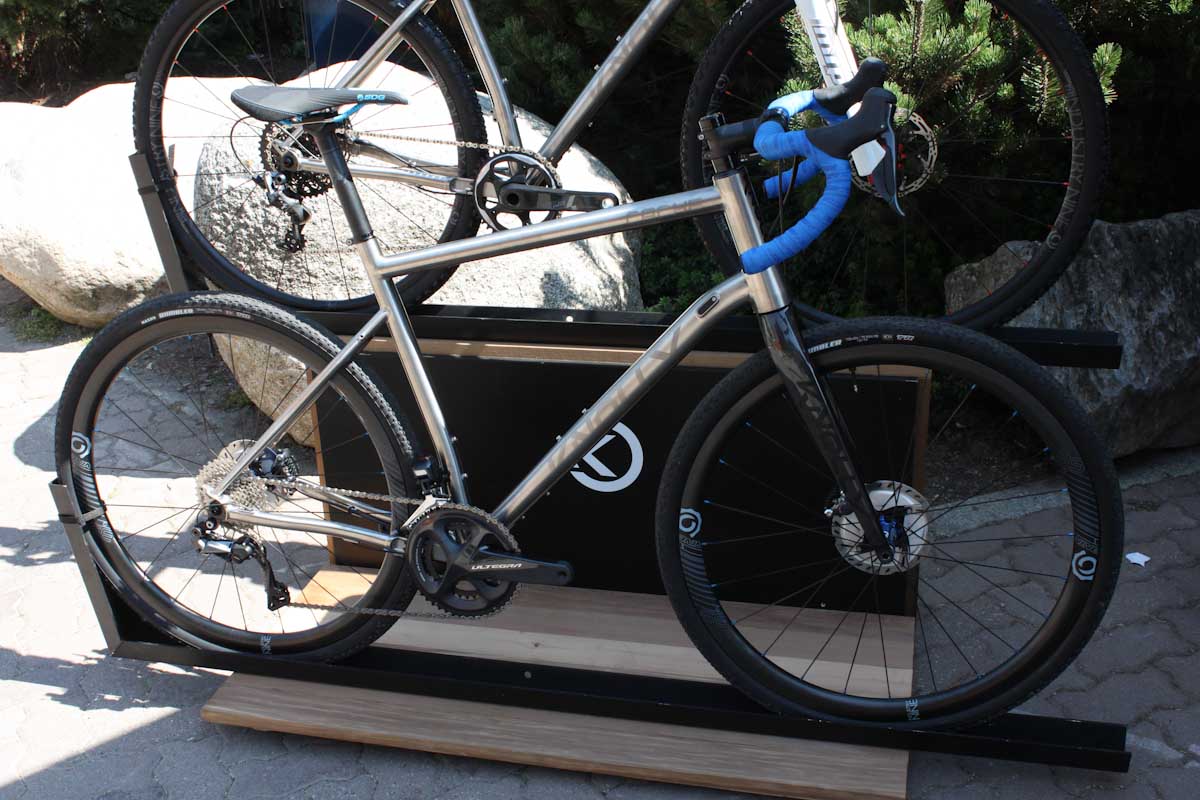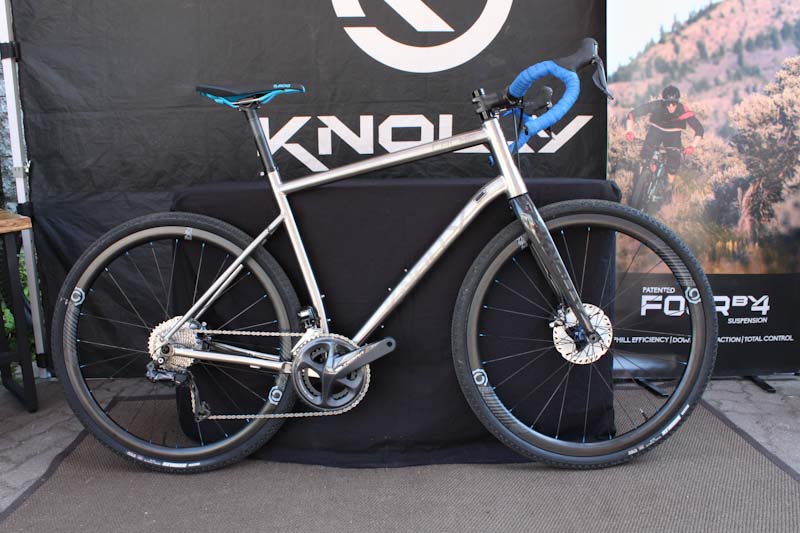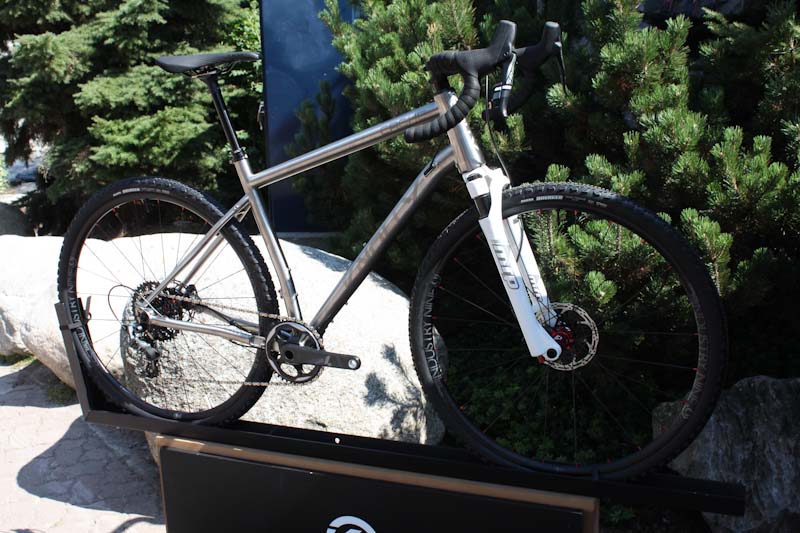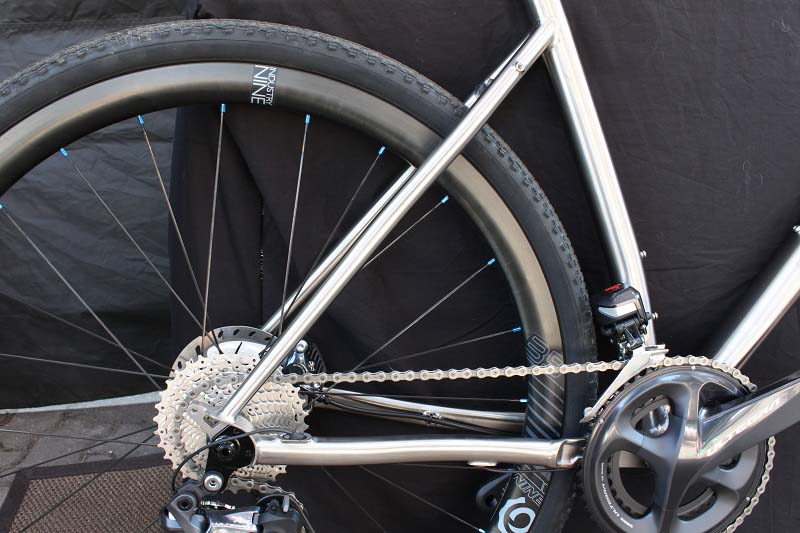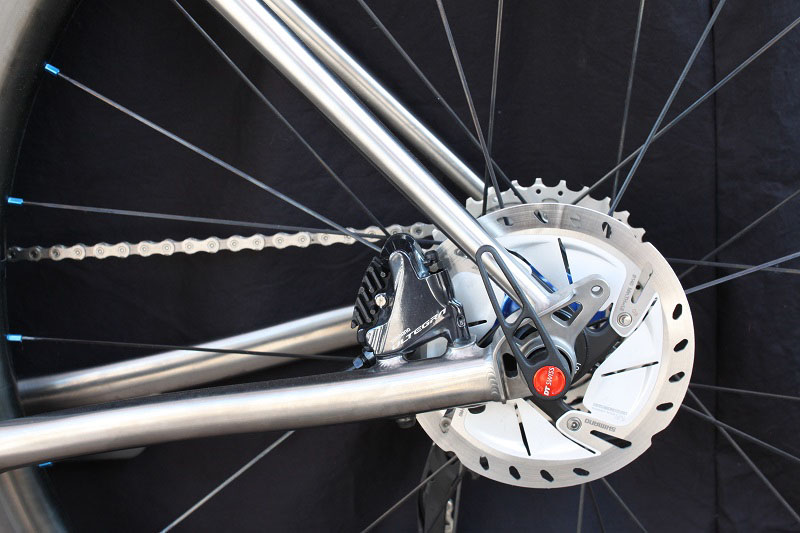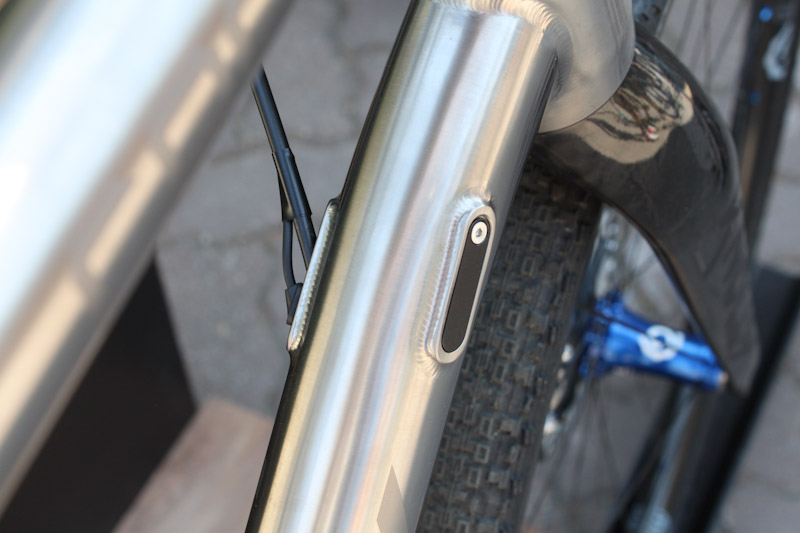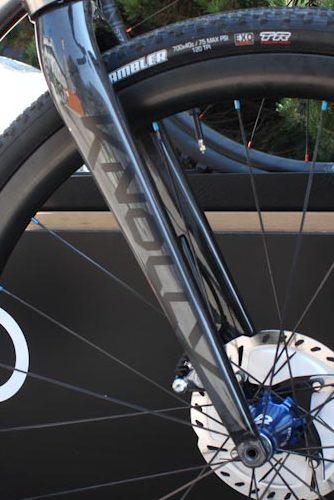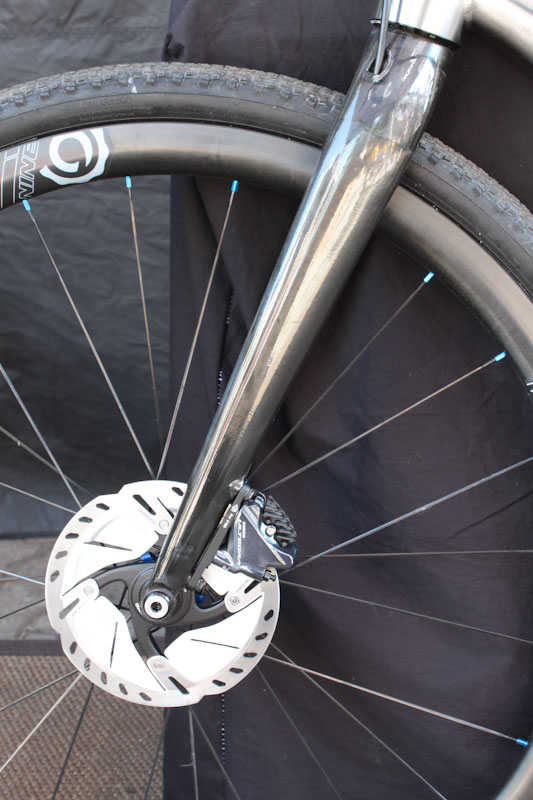Vancouver’s Knolly Bikes had something unexpected under their booth at Crankworx Whistler this year- their first ever non-mountain bike! Knolly has decided to enter the growing gravel riding scene with their latest project, the titanium-framed Cache.
The Cache was created for two reasons- First off, it’s a passion project that they just wanted to make. A few of the guys at Knolly are into gravel grinding, so why not create their own bike to ride? Secondly, there is a business case for the Cache as well. Knolly was looking to get more products to market in between their more intensive endeavours (full suspension MTB’s) which can take quite a while to design and produce.
Moving forward, passion projects like the Cache will be one way Knolly keeps fresh products steadily coming. Knolly’s Paul Nash was hesitant to say a hardtail frame is any easier to design, but producing one is certainly faster than fully-sprung MTB’s with far fewer parts and external suppliers involved, and no final assembly required.
Coming from an off-road focused company, the Cache was designed to be an easy conversion for mountain bikers looking to broaden their horizons. The frame’s MTB-influenced geometry makes for a versatile ride that can tackle nearly anything a trail bike can… although not quite as quickly in the rough stuff!
If you’ve collected a ‘cache’ of spare MTB parts you’ll be pleased to know the Cache frames were built around mountain bike standards, so they can run 27.5” wheels (or 700c), suspension forks and dropper posts. The frames also use the same dropouts and replaceable hangers as the MTB’s, plus the same size headsets, seatposts, and a 12x142mm rear axle. If you run 27.5” wheels, the frame will fit tires up to 2.1” wide. With 700c treads, you’re OK up to 45mm.
The Cache frame was designed to provide plenty of stiffness where it’s required (the down tubes are nearly 50mm in diameter, which is pretty large for Ti) but the titanium’s inherent compliance is allowed to shine in the right places as well.
Since Knolly went with a large MTB-sized seat mast, this increased the frame stiffness in that area. To ensure the right degree of vertical compliance out of the rear end, they angled the seat mast back a little and dropped the seat stay/seatmast junction instead of lining it up with the top tube. Angling the seat stays to join the dropouts just above and behind the rear axle also helps the frame flex its Ti tubes on rough terrain.
In Knolly’s typical style the Cache frames are made entirely from custom tubesets. With seven frame sizes coming (62.5, 60, 58, 56, 54, 52, and 49.5cm), that’s a lot of custom parts but that’s how Knolly rolls! Dropouts, cable guides, chainstay yokes and all other small pieces are designed in-house as well. Frame geometry is not yet finalized, so we’ll have to wait to see the Cache’s measurements.
The internal cable guides on the Cache are the same type used on Knolly’s mountain bikes. These crafty guides incorporate a rubber wedge that clamps against the cable housing to reduce potential rattling inside the frame. The frame has enough space inside to allow an internal dropper post cable to route through the down tube and bend up into the seat mast inside the BB shell, above the bottom bracket itself. That’s a threaded BB shell, by the way.
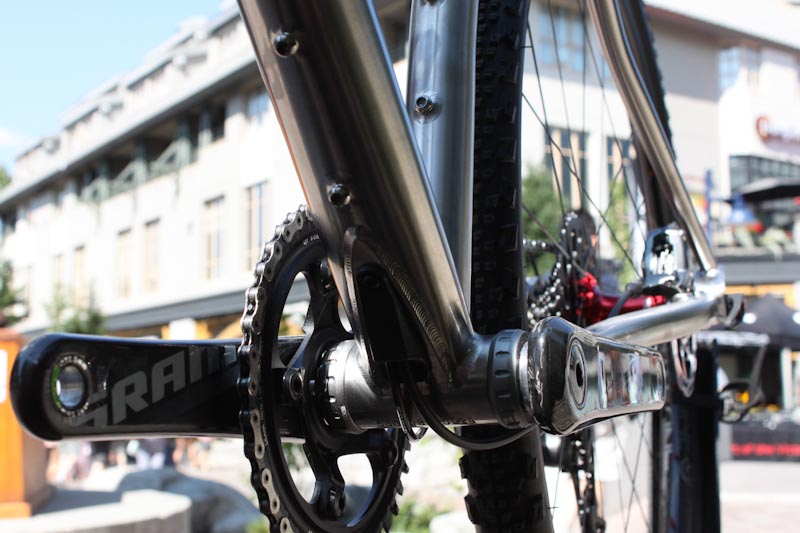
The frames also host a full set of rack and fender mounts. While some brands will try to hide or smoothly integrate their mounts for aesthetic purposes, Knolly favoured convenience and kept them wide open and accessible instead.
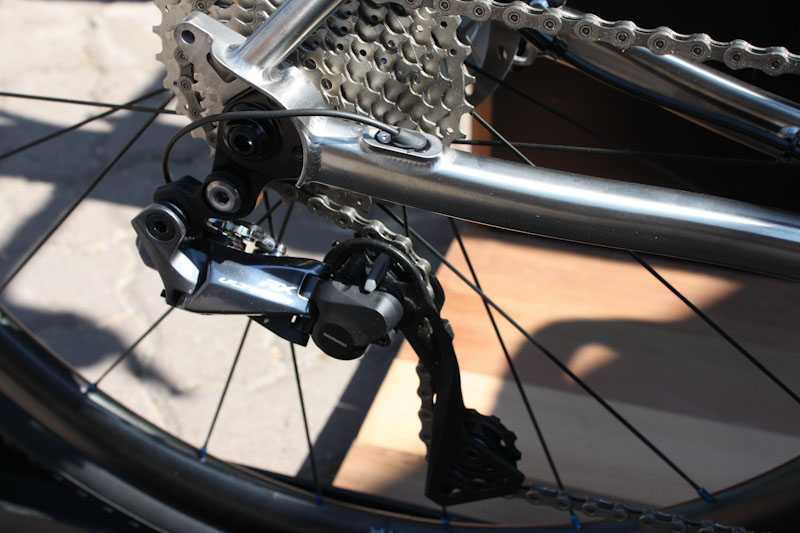
There are two things that will change before the Cache goes into production; First, the seat masts on the frames shown here are not actually at production level, so they will appear slightly different on the finished Caches. Also, the final versions will include cable guides on the down tubes so riders have the option to go external for faster and easier maintenance.
The Cache frames will be manufactured overseas, but Knolly says they’ve enlisted THE premium-level titanium factory whose production capabilities exceed what’s available in North America. The titanium Caches will be available by next spring, and eventually Knolly intends to make a steel version which will hit a far lower price point than the Ti models.
Knolly will offer the Cache as a frame only, a frame/fork combo, and as complete bikes. Pricing has not yet been determined, but expect frames to cost roughly $2700 USD and a high-end complete model to come in around $6500.
Last but not least, Knolly also made their own carbon fork for the Cache. The fork is manufactured in the same facility as their carbon MTB’s, and boasts a one-piece construction. The fork uses a 12mm thru-axle and has a flat-mount disc brake, eyelets for fenders, and internal cable routing for the brake hose. Once it becomes available, the fork will sell for around $500-600 USD.
Keep an eye on Knolly’s website for updates…
